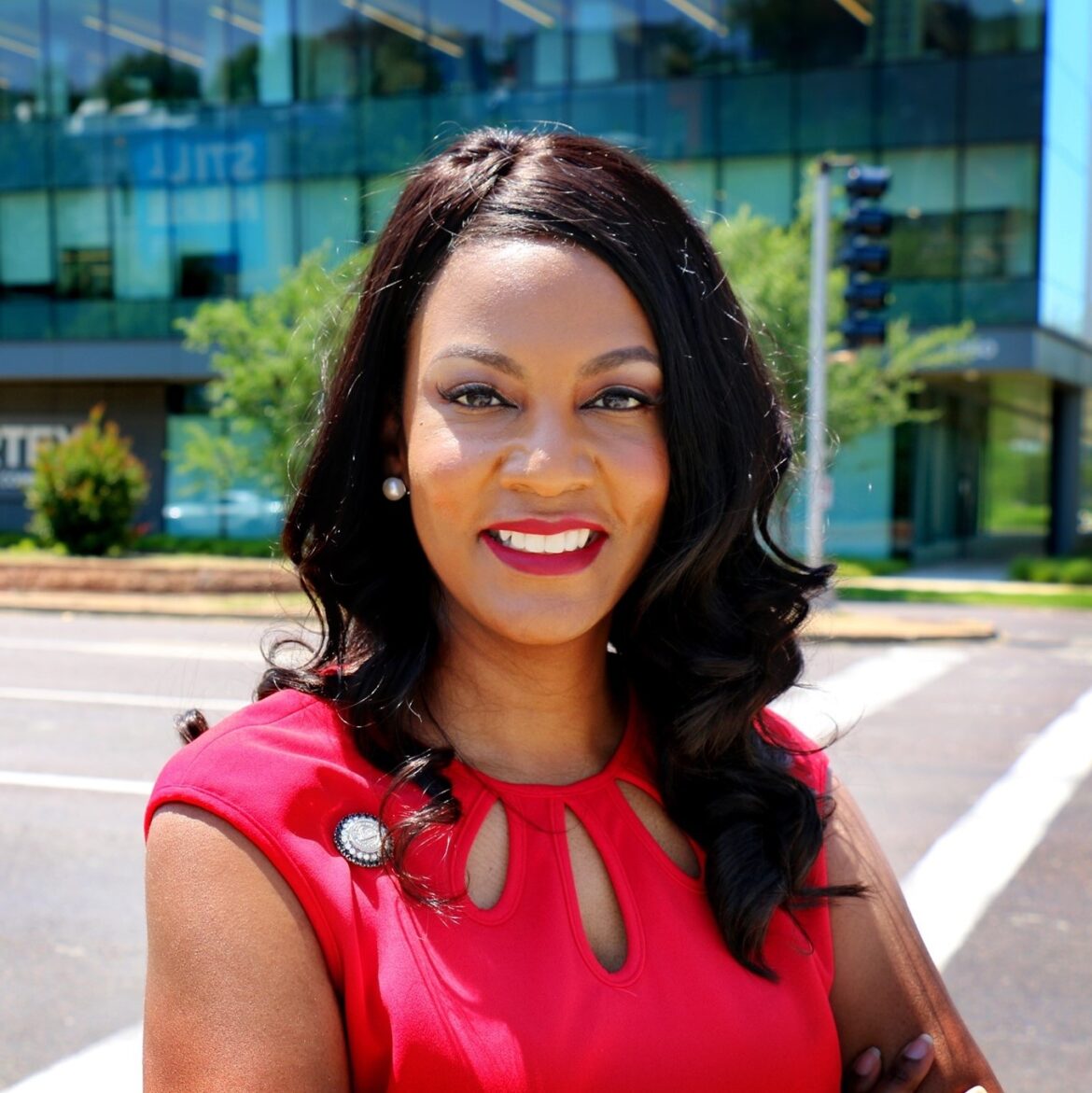TISHAURA O. JONES
MAYOR

NICK DUNNE
PUBLIC INFORMATION OFFICER
CITY OF ST. LOUIS MAYOR’S OFFICE
dunnen@stlouis-mo.gov, (314) 622-4072
Mayor Tishaura O. Jones Appoints City of St. Louis’ First Reparations Commission
ST. LOUIS – Mayor Tishaura O. Jones appointed members of the City of St. Louis’ first Reparations Commission established by Executive Order in December 2022. The volunteer commission will analyze the history of race-based harms in the city and reveal the modern manifestations of injustice. Ultimately, the commission will offer recommendations for methods to develop and implement reparations for Black St. Louisans and the descendants of enslaved peoples.
“St. Louis has always been a leader on civil rights, and we have the unique opportunity to address the damage that decades of racism and disinvestment have done to Black neighborhoods across our City,” said Mayor Tishaura O. Jones. “The Commission’s work is essential as we acknowledge the history of racial injustice in our City, work to rectify them, and build a better, fairer St. Louis for every family.”
The Commission consists of nine members. All members live in the City of St. Louis, and represent different backgrounds, including civil rights advocates, clergy members, attorneys, academics, public health professionals, and youth. The appointments are as follows:
Will Ross, associate dean for Diversity at Washington University School of Medicine and professor of medicine in the Nephrology Division
Delesha N. George, program manager at Deaconess Foundation
Kayla Reed, co-founder and executive director of Action St. Louis
William Foster, city resident and external audit generalist at PriceWaterHouseCoopers
Gwen Moore, historian and curator of Urban Landscape and Community Identity
Kevin Anthony, bridge pastor at Pilgrim Congregational United Church of Christ
David Cunningham, professor and chair of sociology at Washington University in St. Louis
Jada Brooks, a Communications student at Harris-Stowe University
Kimberly Hicks Franks, attorney, activist, and board member of Dutchtown South Community Corporation
“I am honored to be appointed by Mayor Tishaura Jones to the City’s Reparations Commission,” said newly sworn-in commissioner Delesha N. George. “I look forward to working with my fellow commissioners to promote restorative justice and identify opportunities to bring reparations to the people of St. Louis.”
Across St. Louis, residents are subjected to racial disparities in their neighborhoods. Studies show Black residents in the City of St. Louis are more likely than white residents to live in low-opportunity environments, in concentrated areas of poverty, and in areas with low access to healthy food. Also residents of majority Black neighborhoods are more likely to live in neighborhoods suffering from disinvestment.
St. Louis is one of many cities nationwide, including Mayor Jones joined the Mayors Organizing for Reparations and Equity (MORE) Coalition in 2021, an organization dedicated to analyzing best practices and approaches toward pursuing reparations initiatives. The administration’s Commission is its latest effort for advancing racial justice and addressing the toll racism has taken on Black neighborhoods by exploring opportunities to provide St. Louisans reparations at the local level.
The commission will hold its first meeting within 45 days.
ST. LOUIS – On April 19, Mayor Tishaura Jones delivered her first State of the City address, just ahead of the first anniversary of her historic inauguration on April 20, from the Givens Auditorium at Harris Stowe State University, St. Louis’ historically Black university. Mayor Jones emphasized that despite the challenges our city faces, St. Louis is on the precipice of transformative change and that our best days as a city still lie ahead.
Highlighting her family’s roots in North St. Louis, Mayor Jones discussed the ways she has seen St. Louis change throughout her lifetime and emphasized the incredible opportunity offered by the American Rescue Plan Act (ARPA) to reverse decades of disinvestment in our neighborhoods. Mayor Jones committed a $150 million investment in North St. Louis because St. Louis cannot succeed – together – if one half is allowed to fail. Mayor Jones emphasized that economic empowerment, neighborhood transformation, and equitable development are critical to reducing the racial wealth gap in St. Louis, and the administration is looking to leverage ARPA funds to magnify their long-term impact after they expire in 2026.
This commitment builds on millions already invested directly in St. Louis families and communities across zip codes. The administration has worked to make St. Louis a safer, healthier, and better place for families using ARPA dollars through Direct Cash Assistance, COVID-19 vaccine incentives, Gateway Go MetroTransit passes for youth, SLDC’s STL Small Business Grant Fund, and more.
Mayor Jones affirmed her commitment to improving city services and making St. Louis more competitive, proposing a three percent pay raise for St. Louis City employees across the board on top of their annual step increase as well as paid family leave. Since February, Mayor Jones has been meeting with frontline City workers across departments to hear from them about what St. Louis needs to retain its workforce and improve city services, with competitive pay to hire and retain employees the top concern. In that spirit, she also proposed retention incentives, funded through ARPA, for City employees.
Mayor Jones also reaffirmed her commitment to reimagining public safety and deploying the right professionals to the right calls for help to take the burden off police officers to respond to violent crime. St. Louis bucked a national trend between 2021 and 2022, seeing a 25 percent decline in homicides, but it will take more work to make St. Louisans feel safe in their neighborhoods. The administration is currently reviewing proposals funded through $5.5 million in ARPA regarding addiction treatment programs, the expansion of violence interrupters, and more to address the root causes of crime in neighborhoods.
Tonight’s program included a presentation by the Clyde C. Miller Academy ROTC Color Guard, Kennedy Moore singing the National Anthem, a welcome message from Harris Stowe President Latonia Collins Smith, a performance by Phil Woodmore and the Phil Woodmore Singers Kidz, and an opening invocation by Bishop Michael Jones of Friendly Temple Baptist Church. Local media veteran Tammie Holland introduced Mayor Jones, and Pastor Anthony Riley of Central Baptist Church held the closing prayer.
A copy of Mayor Jones’ remarks is available on the City’s website: https://www.stlouis-mo.gov/government/departments/mayor/news/speeches-remarks/sotc-2022.cfm.




